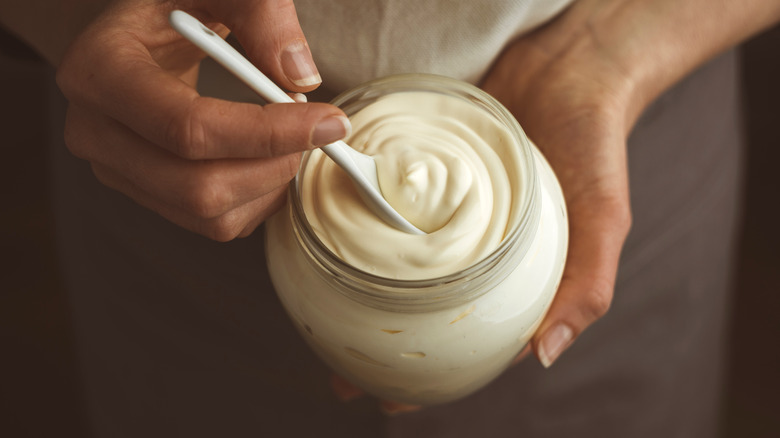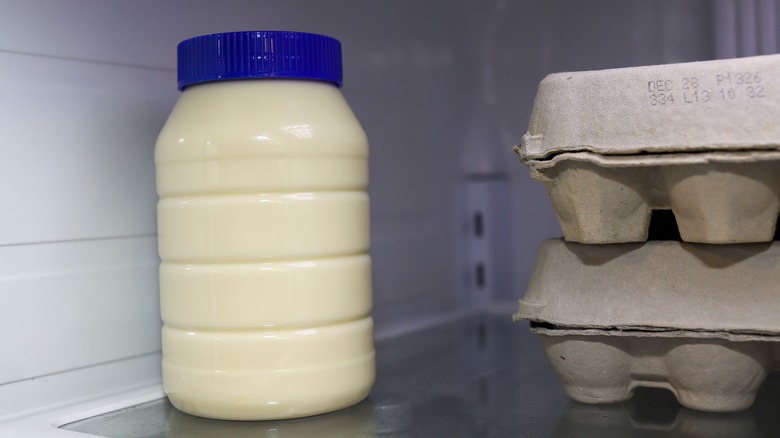Can You Store An Open Jar Of Mayonnaise In The Pantry?
Mayonnaise is the condiment right now. That's right, ketchup has been kicked to the curb thanks to the ever growing versatility of mayo. In 2021, the condiment raked in $164 million worth in sales, with ranch and ketchup trailing behind (via Statista), which shouldn't be too surprising since the thick and creamy sauce is a staple for fries, sandwiches, and salad dressings — it's even be the secret weapon for fluffy baked goods and juicy chicken breast. But as magical as it seems, mayo does have its limitations, especially when it comes to storage.
At its core, mayonnaise is an emulsification of egg yolks and (a typically neutral) oil, not to be confused with aioli, an emulsion of smashed garlic and olive oil, reports Greatist. Many mayo recipes will often include an acidic ingredient like vinegar or lemon juice to help the binding process, along with mustard or other seasonings for extra flavor. The resulting sauce is rich and creamy with a delicately tangy flavor that you'll want to put on everything. But, can that jar of mayo go back into the pantry after opening?
Technically, yes
Brace yourself for some shocking news: Mayonnaise can be stored in the pantry — even once it's opened! According to Today, mayo doesn't need to be kept in the fridge because its high level of acidity can actually slow the growth of bacteria, rendering it safe to store at room temperature. However, this can only be true of commercially-produced versions as they are usually made with pasteurized rather than raw eggs, and packed with additives and stabilizers (via Hunker).
Despite the fact that an opened jar of store-bought mayonnaise remains safe to eat when stored in the pantry, there are still some repercussions. To maintain the fresh flavor and pearly hue of mayonnaise, FoodSafety.gov recommends refrigeration as this can also increase quality and boast shelf life by two months. Plus, the cooler temperatures can minimize oxidation and reduce the spread of unwanted microbes from any cross-contamination of dirty utensils.

